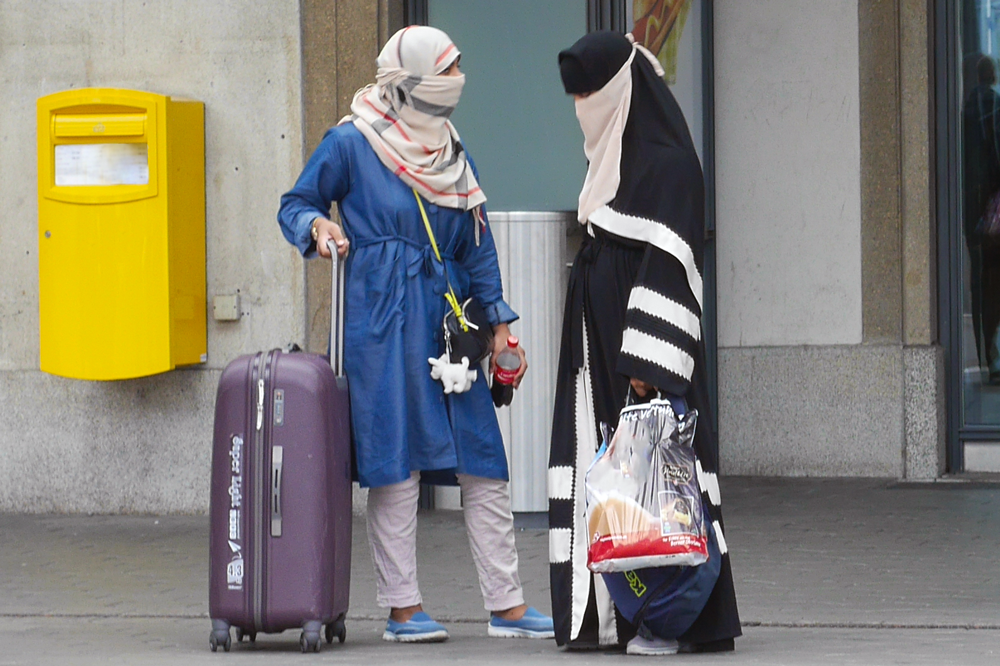Millions of Muslims have just arrived in Saudi Arabia. For many, this will be the first and only trip to Mecca in their lifetime. For others, it is an annual ritual they have undertaken for tens of years. We’re diving headfirst into what Muslims go through to complete this journey, and stories of transformation as pilgrims encounter Jesus. Follow us on social media to receive daily updates on the #journeytoMecca.
Saudi Arabia is the heartland of Islam. It is sometimes called ‘the Land of the Two Holy Mosques’ as it homes Al-Masjid al-Haram, Mecca (Muhammad’s birthplace) and Al-Masjid an-Nabawi, Medina (Muhammad’s burial site). Muslims across the globe turn and pray towards Mecca five times a day. Saudi Arabia prides itself on caring for the holy cities and maintaining a uniquely strong connection with Islam. But is the country the same today as when the religion was formed in the seventh century?
Turning tides on traditionalism
We have seen some drastic changes in the kingdom of Saudi Arabia in 2019. After King Salman ousted his nephew as the successor to the throne in 2017, his son Prince Mohammed bin Salman has been the instigator of modernist shifts in legislation, particularly in the guardianship system.
Male guardianship dictates that a woman needs a male – be that her father, husband, uncle, or sometimes even her son – to make crucial decisions for her. Women’s alleged ‘lack of capacity’ (adam al-kifaa’ah) means that they cannot obtain permits, have medical procedures, or even answer their front doors without the blessing or presence of male authority.
However, in the past twelve months, women have been allowed to attend football matches for the first time and can legally drive cars.

On 1 August 2019, a royal decree stated that women over the age of 21 could apply for a passport and travel without the permission of a male guardian. They can also now register for marriages or divorces.
Even though many consider these freedoms to be minimal and far from enough, these are positive improvements for gender reform. Is there progression and modernisation in other sectors of Saudi society?
Limited freedoms
Freedom of speech remains taboo. Last year, journalist Jamal Khashoggi was assassinated in the Saudi Arabian Consulate of Istanbul, Turkey. Many women’s rights activists have been arrested over the previous twelve months. Media remains censored and monitored by the government.
Freedom of religion is pretty much non-existent. Though Christians account for four per cent of the population (a high percentage when compared with the rest of the Middle East), almost all are expatriates. Christian expatriates risk arrest or deportation if they share their faith with Muslims. Saudi nationals who have become Christian must keep their faith secret, as it is forbidden to practise a religion other than Islam openly. Leaving Islam is punishable by death.
With all this in mind, we invite you to take the #journeytoMecca with us over the next few days. We would like you to think about Saudi as a whole, in light of its many social changes, as it hosts the Hajj in Islam’s holiest city.
What’s occurring?
This month is the twelfth month in the Islamic calendar and the time of year when Hajj is performed. Hajj translates to ‘pilgrimage.’ It is one of the five pillars of Islam and must be completed at least once in a Muslim’s lifetime.
There are many different ways of performing Hajj and numerous schools of Islamic thought. Join us for five days as we explore the standard practices and focus on specific prayers during each rite of the Hajj. Follow us on social media to receive daily updates.